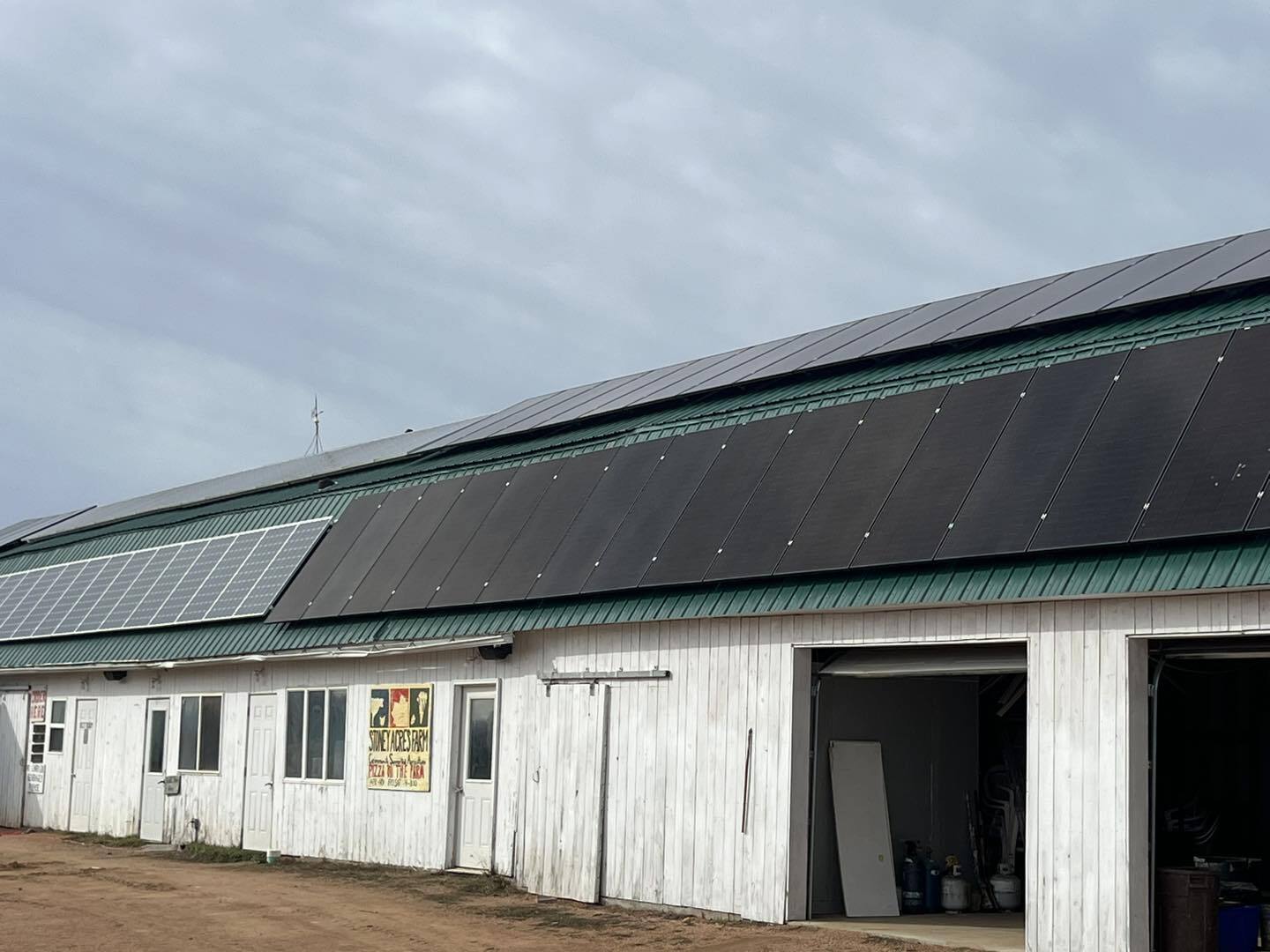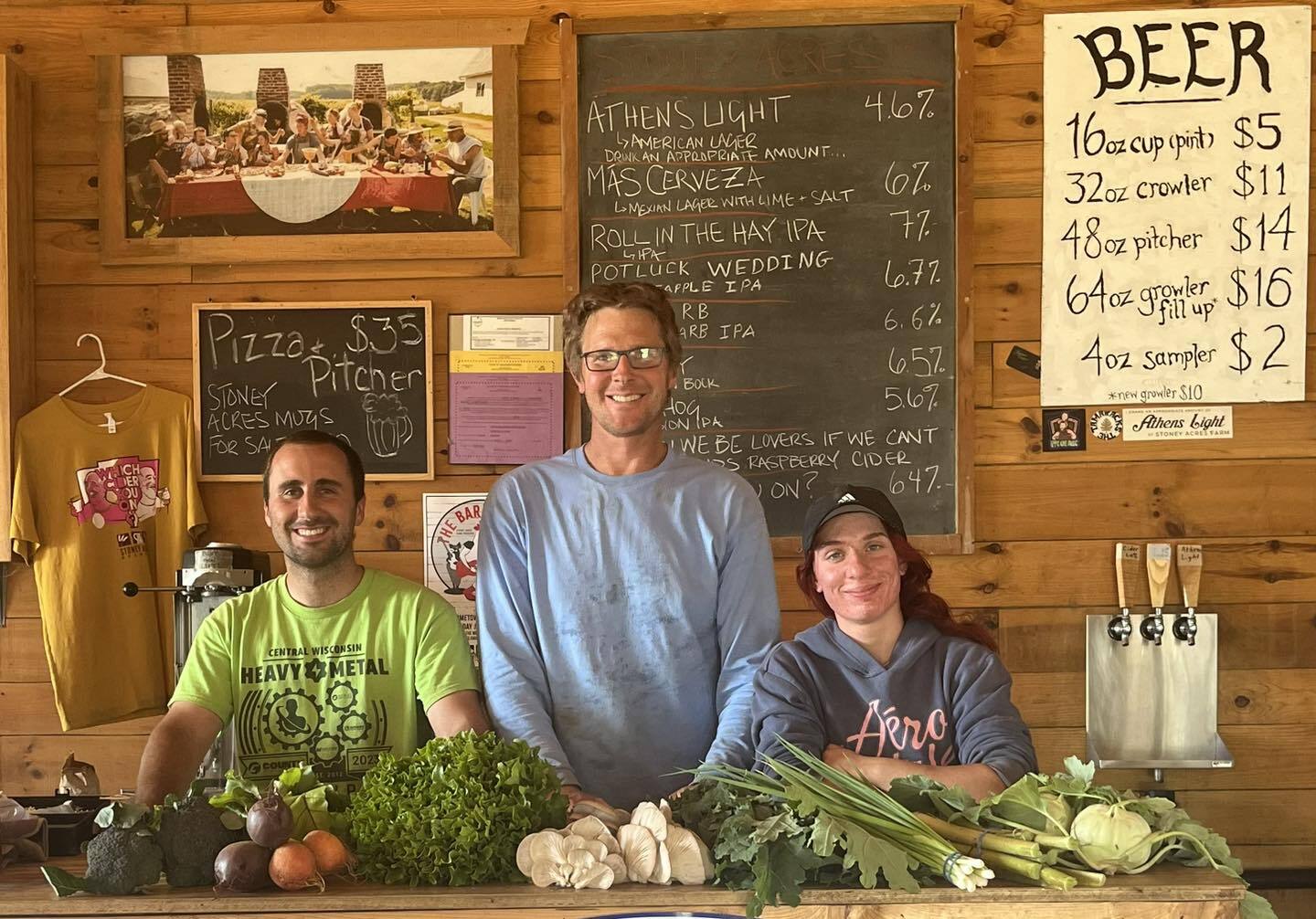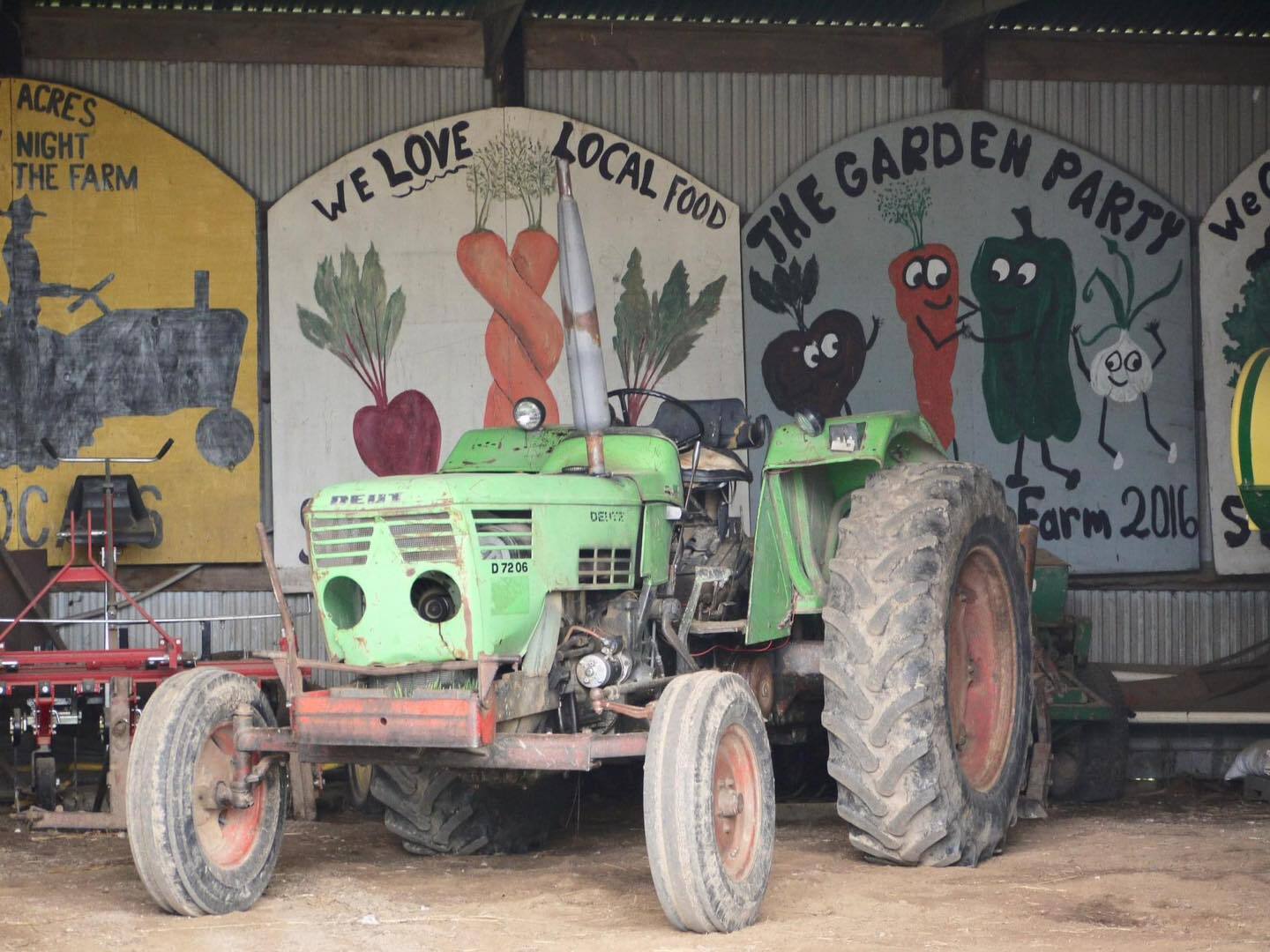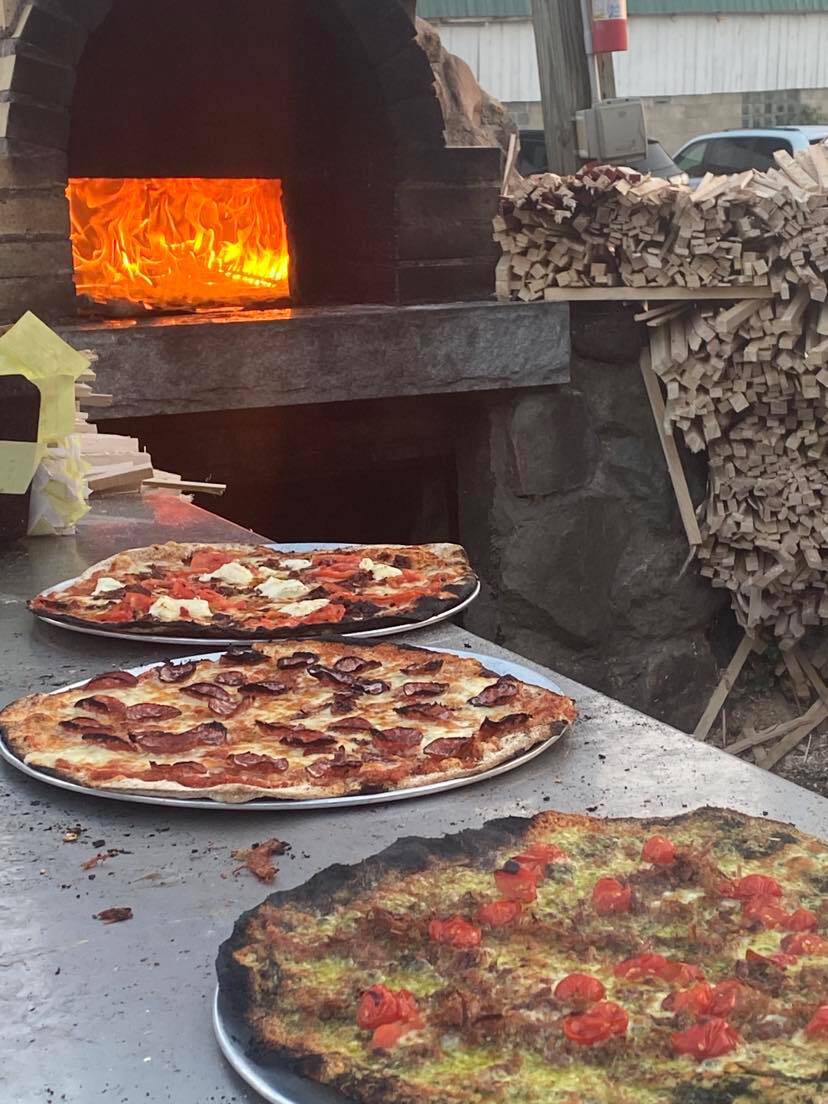Solar-powered savings at Stoney Acres Farm
- Rural Energy for America Program,
- Stories

In the heart of America’s Dairyland, Tony Schultz is taking his third-generation family farm solar to meet the needs of an increasingly diversified business and the energy requirements that come with it.
Since taking over the reins of Stoney Acres Farm in Athens, Wisconsin, Tony has transformed the former dairy operation into “a diversified, locally based, organic family farm.” He focuses primarily on organic vegetables. He also raises pigs, cows, corn, and wheat. The farm’s yield makes its way into Community Supported Agriculture (CSA) boxes and farmers markets year-round. They’re also toppings on the pizzas he serves from April to November.
“I make everything for the pizzas except the cheese … raise the wheat, grind it to flour, make it to dough. I raise all of the tomatoes, make that into my sauce. I raise all of the vegetable toppings in my organic fields, and all of the pigs for the bacon, sausage, ham and pepperoni,” Tony said. The pies he bakes up in outdoor wood-fired brick ovens can be washed down with beers from the adjoining Stoney Acres Brewery.

As his operation has evolved over the years. So too have his energy needs. These days he uses solar to produce the “vast majority, of my electric bill, which would otherwise be coming from my utility,” he says. In 2013 he installed a small solar array. After seeing the benefit, he added an expansion in 2023. Solar covers around 75 percent of his annual electricity needs. “Energy diversification for my farm is important for limiting fixed costs and my relationship with the environment,” shares Tony.
In an industry where every penny counts, producing his own power has been crucial for reducing expenses. As he puts it: “I can make a capital investment of buying another tractor for $50,000 or I can make a capital investment of buying 20 kW of solar … and what the solar panels have done has taken my fixed [energy] costs of approximately $800 during peak season … down to about $225. So they are functioning to save me money every month,” Tony explains.

Tony financed the original solar project and his expansion in 2023 with the help of Wisconsin’s Focus on Energy program and the federally funded Renewable Energy for America Program (REAP). Both offer incentives and rebates to farmers and rural businesses for a variety of energy-saving and renewable energy projects. The Inflation Reduction Act expanded REAP in 2022. This helped Tony secure $20,000 in grant funds for his solar system. The almost $24,000 he received in state and federal incentives means he will pay back the capital cost of his system in about six years.
Having experienced the benefits for himself, Tony’s advice for others is simple: “Make sure you get the REAP grant if you’re a farmer. This is designed for rural businesses, especially agriculture. Farmers have these big, south-facing machine sheds. It’s perfect. Load them up, cut your energy costs… The REAP grant—it’s the most important incentive there is. Get on it.”
After seeing his energy bill drop by 50 percent in the first two months after installation, Tony saw an opportunity for further savings and installed an electric, tankless water heater, “that shaved another … $75 off my electric bill every month,” he said.

The money solar has freed up will be used to support the future of both the farm and his family. With a new hoop house and his kids’ post-secondary education on the horizon, Tony is thankful for the savings.
As an intentionally small-scale farm focused on local food and environmental stewardship, solar fits perfectly into the larger equation.
During Wisconsin’s warmer months when Pizza on the Farm is in full swing, “people ask about [the panels] constantly,” he says. “The environmental benefit and then also the environmental perception for people who want to consume something that is environmentally conscious” serves him well as a business owner. Being solar-powered “goes hand in hand with eating organic food [and] farm-to-table dining experiences,” he shares.

A single effort that doubles your impact is a consistent theme at Stoney Acres. “I always tell my crew, eliminate motions. Don’t waste your energy going back and forth. If you can, just go forth.” Going solar is this ethos in action, allowing Tony to boost his bottom line while also serving as a steward of the land he sows and the community that gathers there. If you’d like to learn more about going solar and how you can take advantage of incentives, download SUN’s Go Solar guide.

Get the latest on solar straight to your inbox.
Fight for your solar rights.
Everyone has the right to go solar. Spread the sunshine nationwide and in your local community by taking action, joining events, and more.